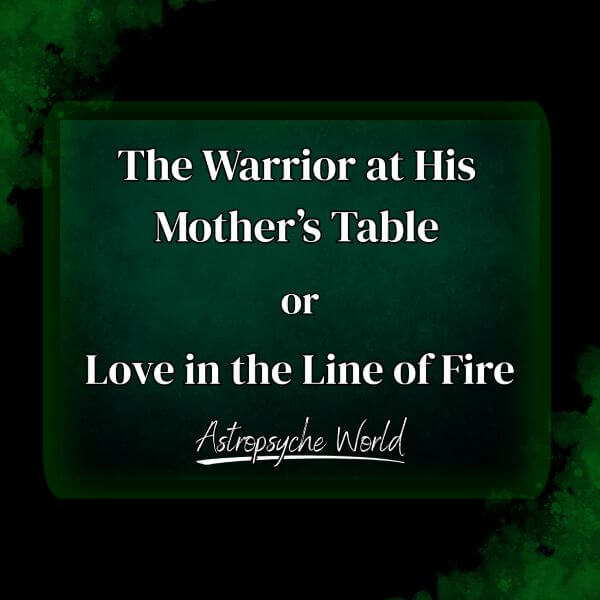Mars in Cancer – Archetypal Image
Mars in Cancer – Archetypal Image
Mars is in fall in Cancer.
Mars the archetype of the Warrior, when placed in Cancer, is immersed in the archetype of the Mother and the Home. Instead of turning his sword toward the outer world, he directs it within the walls of the house – toward family, memories, and the inner child. This is the image of a warrior in the kitchen, or a warrior who defends himself with tears.
Psychological Dynamics
In psychological terms, Mars in Cancer carries an energy always colored by emotions and
unconscious memories. Will (“I want”) is not differentiated from feeling (“I feel”). The result is
ambivalence: every decision becomes emotionally tinted, every action vulnerable.
In its most difficult form, this leads to:
Passive aggression – anger not expressed directly, but through withdrawal, sulking, silence, emotional blackmail.
Regression – the drive to act turns into an infantile search for safety.
Explosions of anger – when suppressed for too long, anger erupts suddenly, usually in intimate or family relationships.
The Shadow of Mars in Cancer
The shadow here is tied to the matrix of the Mother:
The animus (the masculine principle in the female psyche) remains trapped in the maternal matrix, so the individual struggles to separate from the mother while simultaneously seeking her protection.
In the male psyche, Mars in Cancer can bring conflict between the desire to be strong and the need to be nurtured. The result may be a sense of inner castration, or anger projected onto partners or family.
In the female psyche, the animus in Cancer becomes the “warrior who protects the home,” but in its darkest form it turns possessive, motionally manipulative, or helpless.
Jungian Motif
In its lowest expression, Mars in Cancer depicts the archetype of the “wounded warrior in the mother’s home.” He is not free to fight for his goals, but constantly reacts out of unconscious vulnerability and past wounds.
Motif:
The warrior returns to childhood.
Every battle becomes a battle for love and recognition from the family. Anger becomes a mask for feelings of abandonment and insecurity. Key Patterns in Their Darkest Form Repression of personal will for the sake of “family harmony,” followed by sudden outbursts of anger.
The feeling of being constantly hurt or unappreciated by others, leading to withdrawal into the role of the victim. Inability to set clear boundaries – will and identity merge with family or close relationships. Aggression turned inward through guilt, shame, and self-sabotage.

